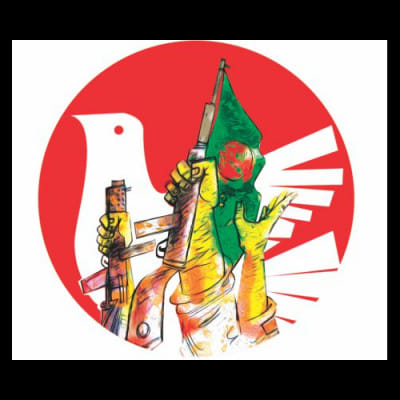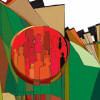MARCH 30, 1971: Pakistan air force bombs Kalurghat radio station

The month of March was near the end. But the barbarity of the Pakistan army was nowhere close to the finish line. It only got worse.
On March 30, 1971, the ruthless Pakistan army recklessly opened fire around the surrounding areas of the Rangpur Cantonment, killing many innocent people. Apart from this rows of villages and houses were burned and many civilians were tortured.
On behalf of Sheikh Mujibur Rahman, Chittagong's Swadhin Bangla Betar Kendra urged the world and all democratic governments to come forward and help Bangladeshis. That very night, Pakistan Air Force bombed the radio station at Kalurghat.
Chittagong city was encircled by the Pakistani occupation forces from all sides and bombed.
In the evening, under the command of Matin Patwari, freedom fighters took hold of the Kushtia Police line.
Meanwhile, Major Zia handed over command of Kalurghat to Captain Ali
At Rokeya Hall, six naked female bodies were found dangling from the ceiling fans by rope. Apparently the girls were raped, shot and hung from the heels.
The army mercilessly burned areas in Old Dhaka. Predominantly Hindu areas were burned, and a large number of prisoners were taken to the East Pakistan Rifles base.
Jyotirmoy Guhathakurta, a Bangalee educator and humanist, who was shot after his home was broken into on March 25, succumbed to his wounds at the Dhaka Medical College and Hospital and breathed his last on this very day in 1971.
Archer Blood reported an American's observation of the atrocities committed at Dhaka University. The observer indicated that students had been "shot down in rooms or mowed down when they came out of buildings in groups." In one instance, the martial law administration set a girls dormitory on fire and then the girls were "machine-gunned as they fled the building."
The month that ignited the fire of freedom was about to end, but the war had only begun.
Source: Liberation War Museum, The Daily Star archive, and Bangladesh Genocide Archive.

 For all latest news, follow The Daily Star's Google News channel.
For all latest news, follow The Daily Star's Google News channel. 








Comments